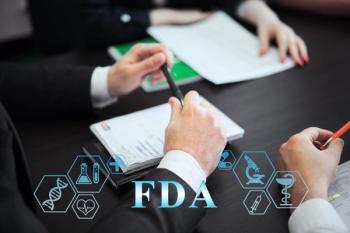
- Pharmaceutical Executive: June 2024
- Volume 44
- Issue 6
Regaining Trust in the Pharma Industry
Leaders must address the root causes of negative public perception.
The pharmaceutical industry has a trust problem. Despite recent successes for the industry and the goodwill generated from its COVID-19 response, public perception of the sector has dropped again. In reality, the entire healthcare industry, not just pharma, is struggling with trust issues, but Big Pharma seems to usually face the harshest wrath.
Ultimately, it’s up to pharma leadership to address this situation and find solutions. Life sciences companies need to develop new strategies for communicating with the public, while also addressing drug pricing issues. At the same time, they need to find ways to combat misinformation, which can spread like wildfire on the internet. All of these issues require people at the top of the pyramid to get involved.
This topic came up multiple times at a recent conference I attended in New York City. The Financial Times US Pharma and Biotech Summit featured several panels on a variety of topics. Not surprisingly, the issue of trust and the industry’s relationship with patients sparked strong responses.
During a panel related to redefining the industry’s relationship with patients, Eden Wells of Novartis directly brought up the trust issue. “It is not lost on me that patients don’t trust any of us, meaning that they don’t trust Big Pharma,” she said. “They even have a really hard time trusting anyone in the ecosystem because it is so fragmented.”
Wells went on to discuss how Novartis built a platform designed to meet customers where they want to be met, but her initial point is very interesting. The pharma ecosystem is incredibly complex, and most patients have no idea how the various parts work and who does what. It’s a monumental task, but for pharma leaders to rebuild trust among patients, they’re going to have to work to fix the entire healthcare system, not just the pharmaceutical sector.
During a panel focused on drug pricing, Sarah Emond from the Institute for Clinical and Economic Review, discussed how patients feel about drug pricing. Not surprisingly, it isn’t good.
“Drug pricing continues to be top of mind. Eight out of 10 Americans think that drug prices are too high,” she said. “The healthcare spend in general is getting bigger and bigger and we’re not seeing those commensurate changes or increases in life expectancy. So we’re spending more, but we’re not getting more out of the spend. That disconnect doesn’t feel great.”
During the same panel, John O’Brien from the National Pharmaceutical Council, discussed how the system determining drug prices has changed in recent years.
“You go back 30 years, we could look at statins and say, wow, for every 22 people we treat, we prevent a heart attack or stroke; this is the cost of that,” he explained. “Thank God that these drugs are going to go generic when their patents expire, and we all get the benefit of that innovation. And now, the market’s a little different. We’re not seeing list prices decrease when drugs compete with each other; we’re seeing payers say, you’re going to have to pay a higher rebate than the incumbent if you want a preferred physician formulary.”
Ultimately, the problem of patients not trusting the pharma industry doesn’t have an easy solution. There’s no one thing that pharma leaders can do to fix it. During the FT summit, many speakers tackled the topic of trust, and while they each had different viewpoints, they consistently pointed out drug pricing as the main issue. Unfortunately, reducing costs isn’t necessarily as easy as it initially seems.
Drugmakers have to navigate a complicated system of pharmacy benefit managers (PBMs), insurance companies, and shareholders. Trimming drug prices isn’t as easy as just deciding to do so, and it will likely take a major overhaul of the entire system before patients start seeing significant savings.
Recently, there has been a surge in direct-to-consumer platforms, which allow manufacturers to bypass pharmacies and PBMs and sell drugs directly to patients. Some of these platforms also allow for cost comparisons, so patients can find the most affordable way to purchase medications. Interacting directly with consumers won’t cure the trust ills entirely, but it’s a great first step.
One point that most speakers agreed on is that if the trust problem isn’t solved, then it’s likely that more government regulation, such as the Inflation Reduction Act, will be coming. The success of these regulations depends entirely on how they’re crafted, but one thing is clear: pharma needs to solve this issue, or it will be solved for them.
Mike Hollan is Pharm Exec’s Assistant Managing Editor. He can be reached at mhollan@mjhlifesciences.com.
To find more coverage from the Financial Times US Pharma and Biotech Summit, click
Articles in this issue
over 1 year ago
Beyond the Numbers: Extrapolating Today’s Trends Forwardover 1 year ago
Pharmaceutical Executive: June 2024 Issue (PDF)over 1 year ago
Opposite Spectrumsover 1 year ago
2024 Pharm Exec Top 50 Companiesover 1 year ago
Craig Tooman: Silencing the Distractionsover 1 year ago
The Healthcare System is Changing—So How Should We Respond?over 1 year ago
Biotech Performance Remains Tethered to Rate Expectationsover 1 year ago
Pharm Exec Exclusive: Mark Cuban Talks Drug PricingNewsletter
Lead with insight with the Pharmaceutical Executive newsletter, featuring strategic analysis, leadership trends, and market intelligence for biopharma decision-makers.




